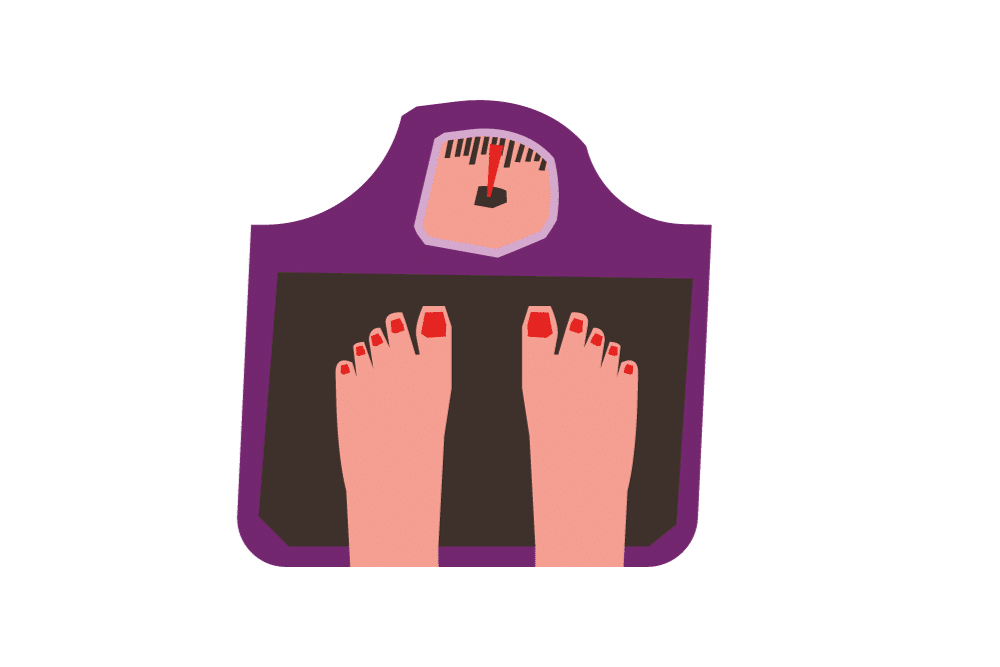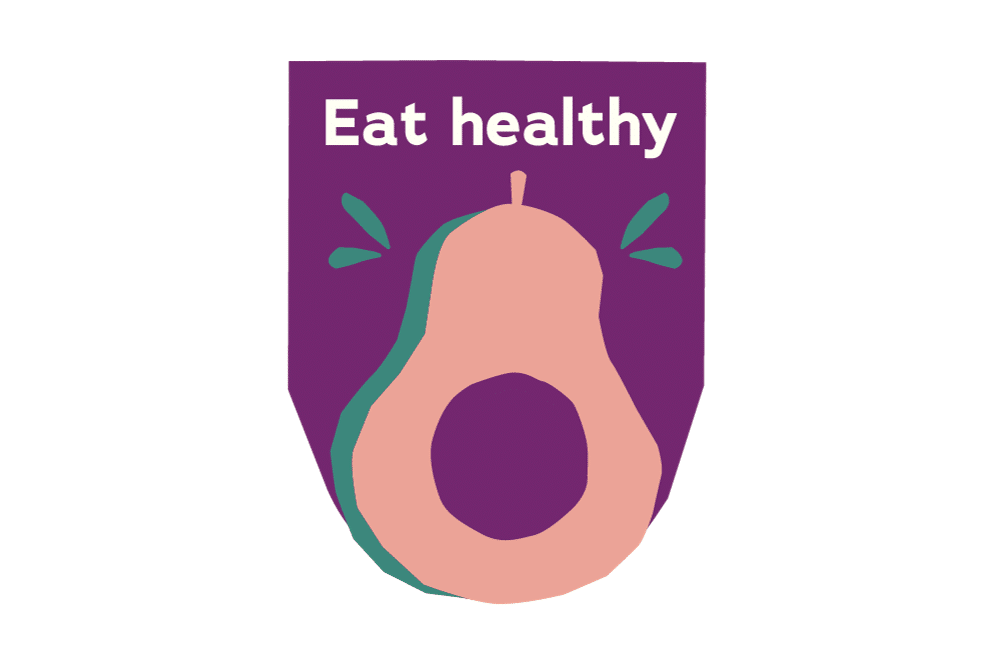Embarking on a weight loss journey can be challenging for anyone, but when you are living with polycystic ovary syndrome (PCOS), the obstacles can feel even more daunting. PCOS affects many women worldwide, impacting not only their reproductive health but also their overall well-being. One of the most pressing concerns for women with PCOS is managing their weight, as this condition often leads to stubborn weight gain and difficulty shedding those extra kilos. However, in this article, we explore the promising path towards successful weight loss while living with PCOS.
We address the physical aspects of weight loss and the holistic approach required to tackle PCOS-related challenges. With the right knowledge, support, and determination, it is possible to overcome the hurdles and achieve your weight loss goals while effectively managing your PCOS.
What is PCOS?
Polycystic ovary syndrome is a common hormonal disorder that affects people with ovaries, primarily women of reproductive age. PCOS is characterised by an imbalance of hormones, which can result in various symptoms and health issues. The exact cause of PCOS is not fully understood but often involves a combination of genetic and environmental factors.
One of the defining features of PCOS is the presence of small, fluid-filled sacs or cysts on the ovaries. These cysts are actually immature follicles that haven’t matured to release an egg during the menstrual cycle. Instead, they accumulate on the ovaries, which can lead to irregular menstrual cycles and fertility problems.
In addition to ovarian cysts, PCOS is associated with high levels of androgens, often referred to as “male hormones.” While everyone has some level of androgens, women with PCOS may have an excess, which can cause a range of symptoms such as acne, excess hair growth (hirsutism), and hair thinning.

How does PCOS affect your body?
PCOS can have a broad impact on the body, and its effects vary from person to person. Some common ways PCOS affects the body include:
Menstrual Irregularities: PCOS often leads to irregular menstrual cycles, which can manifest as missed periods, heavy or prolonged bleeding, or infrequent menstruation. This irregularity can make it challenging to predict ovulation and can contribute to fertility issues. Find out how to know if you’ve ovulated.
Hormonal Imbalances: The elevated levels of androgens in PCOS can result in symptoms like acne, unwanted hair growth, and male pattern baldness. These hormonal imbalances can also influence mood and energy levels.
Insulin Resistance: Many women with PCOS have insulin resistance, which means the body’s cells don’t respond effectively to insulin (a hormone that regulates blood sugar). This can lead to higher blood sugar levels, an increased risk of type 2 diabetes, and difficulty in managing weight.
Weight Gain: PCOS is often associated with weight gain, and many people with this condition struggle with excess weight or find it challenging to lose weight. Excess weight can exacerbate other PCOS symptoms and increase the risk of complications like diabetes and heart disease.
Fertility Challenges: Due to irregular ovulation and hormonal imbalances, PCOS is a leading cause of infertility. Women with PCOS may experience difficulties in becoming pregnant and might require medical assistance to conceive.
Understanding how PCOS affects the body is the first step toward effectively managing the condition, including weight management, which can be a key component of PCOS treatment.

The Weight Connection: Why PCOS Can Make You Gain Weight
Polycystic ovary syndrome often goes hand in hand with weight-related challenges. In this section, we will delve into the relationship between PCOS and weight gain, as well as the factors contributing to these difficulties.
Exploring the link between PCOS and weight gain
The connection between PCOS and weight gain is complex and multifaceted. While not everyone with PCOS is overweight, a significant number of individuals with this condition do struggle with excess weight. Here’s why:
Hormonal Imbalance: PCOS disrupts the balance of hormones in the body, leading to an increase in androgens (male hormones) and insulin resistance. These hormonal changes can make it easier to gain weight, especially around the abdomen.
Metabolic Changes: Insulin resistance is common in PCOS, and it plays a crucial role in weight management. When the body doesn’t respond efficiently to insulin, it can lead to elevated blood sugar levels and increased fat storage.
Appetite and Cravings: Hormonal imbalances in PCOS can influence your appetite and cravings, making it more challenging to control what and how much you eat. This can lead to overeating and weight gain.
Inflammation: PCOS can also trigger inflammation in the body, which can disrupt the normal functioning of metabolic processes and contribute to weight gain.

Factors contributing to weight challenges in PCOS
Several contributing factors further complicate weight management with PCOS:
Difficulty Losing Weight: Women with PCOS often find it harder to lose weight compared to those without the condition. This can be frustrating and demotivating.
Emotional and Psychological Impact: PCOS-related weight gain can take a toll on emotional well-being, leading to stress, anxiety, and depression (know the signs of depression in women). These emotions may, in turn, impact eating habits and weight management efforts.
Vicious Cycle: Weight gain can worsen some PCOS symptoms, such as insulin resistance and hormonal imbalances, creating a vicious cycle that makes it even more challenging to lose weight.
Medical Implications: Excess weight in PCOS increases the risk of developing other health conditions, including diabetes, heart disease, and sleep apnea, which require careful management.
Understanding the connection between PCOS and weight gain, as well as the contributing factors, is the first step in effectively addressing weight-related challenges while living with PCOS. The journey to weight management may require a tailored approach that takes these factors into account.
Eating Well for PCOS Weight Loss
Maintaining balanced eating is a critical component of managing weight with PCOS. In this section, we’ll explore the foods to embrace, foods to avoid, and some simple meal-planning tips to help you on your journey toward PCOS weight loss.
Foods to Embrace
Fibre-rich foods: Include plenty of whole grains, fruits, and vegetables. These high-fibre foods help stabilise blood sugar levels and keep you feeling full longer.
Lean Proteins: Opt for lean protein sources like skinless poultry, fish, tofu, and legumes. Protein helps control appetite and supports muscle maintenance.
Healthy Fats: Incorporate sources of healthy fats, such as avocados, nuts, and olive oil, into your meals. These fats are good for your heart and overall health.
Low-Glycemic Carbohydrates: Choose carbohydrates with a low glycemic index, like quinoa, sweet potatoes, and whole wheat pasta. These carbohydrates are digested more slowly, preventing rapid spikes in blood sugar.
Dairy Alternatives: If you’re lactose intolerant or prefer non-dairy options, consider unsweetened almond milk, soy milk, or other dairy alternatives fortified with calcium and vitamin D.
Antioxidant-Rich Foods: Leafy greens, berries, and colourful vegetables are loaded with antioxidants, which can help reduce inflammation and improve insulin sensitivity.

Foods to Avoid
Highly Processed Foods: Minimise your intake of processed foods, which often contain added sugars, unhealthy fats, and artificial additives. These can disrupt your hormone levels.
Sugary Snacks and Beverages: Cut down on sugary snacks, sodas, and sweetened drinks. They can cause rapid spikes in blood sugar and promote weight gain.
Trans Fats: Avoid foods high in trans fats, like many fast foods and packaged snacks. These fats are associated with inflammation and insulin resistance.
Excessive Caffeine: While a moderate amount of caffeine is fine for most people, excessive caffeine intake can disrupt sleep and stress management, which are crucial for weight control.
Alcohol: Limit alcohol consumption, as it can interfere with hormone regulation and impact your ability to make healthy food choices.
Simple Meal Planning Tips
Regular Meals: Aim for regular meals and snacks to maintain steady blood sugar levels. Don’t skip meals, as this can lead to overeating later in the day.
Hydration: Stay well-hydrated with water or herbal teas. Sometimes, thirst is mistaken for hunger.
Meal Diversity: Try to incorporate a variety of foods into your meals to ensure you’re getting a wide range of nutrients.
Meal Timing: Consider eating your largest meals earlier in the day and have a lighter dinner to support better blood sugar control.
Consult a Dietitian: A registered dietitian can help you create a personalised PCOS-friendly meal plan that meets your needs and goals.
Adopting a PCOS-friendly diet is a powerful step toward achieving weight loss and improving overall health. Tailoring your eating habits can make a significant difference in managing the challenges posed by PCOS.

Movement for PCOS Weight Management
Regular physical activity is a crucial component of PCOS weight management. In this section, we’ll explore the role of exercise in managing PCOS-related weight challenges and provide exercise routines suitable for women with PCOS.
The Role of Physical Activity
Exercise plays several vital roles in the management of PCOS and weight loss:
Enhances Insulin Sensitivity: Regular physical activity improves insulin sensitivity, helping your body use glucose more effectively and reducing the risk of insulin resistance.
Burns Calories: Exercise burns calories, which is essential for weight loss. It helps create a calorie deficit when combined with a healthy diet.
Supports Hormone Balance: Physical activity can help regulate hormones by reducing levels of androgens (male hormones) and promoting healthier levels of hormones in the body.
Boosts Mood and Energy: Regular exercise can improve mood, reduce stress, and increase energy levels, which can be especially beneficial for women with PCOS who may experience mood swings and fatigue.
Exercise Routines for PCOS
When designing an exercise routine for PCOS weight management, consider the following:
Aerobic Exercise: Incorporate 150 minutes of moderate-intensity aerobic exercise to promote weight loss. Aerobic exercise can include brisk walking, swimming, or cycling in your weekly routine. This can be divided into shorter sessions, such as 30 minutes, five days a week.
Strength Training: Include strength training exercises two to three times a week. These exercises help build muscle, boost metabolism, and improve body composition. Body weight exercises, resistance bands, or weights can be used.
High-Intensity Interval Training (HIIT): HIIT workouts involve short bursts of high-intensity exercise followed by rest periods. HIIT can be effective for burning calories and improving insulin sensitivity. Start slowly and gradually increase the intensity as your fitness level improves.
Yoga and Mind-Body Exercises: Yoga can aid in stress reduction, flexibility, and relaxation. Mind-body exercises like yoga and Pilates can complement your routine by enhancing mental well-being.
Tailor to Your Preferences: Choose activities you enjoy to make exercise a sustainable part of your lifestyle. Whether dancing, hiking, or playing a sport, find something you look forward to doing.
Consult a Fitness Professional: If you’re new to exercise or have specific concerns, consider consulting a fitness professional, like a personal trainer, who has experience working with women with PCOS. They can help you design a safe and effective exercise plan.
Remember, consistency is key. Start at your own pace, and gradually increase the intensity and duration of your workouts. Be patient with your progress, and listen to your body. Regular exercise, in combination with a balanced diet, can significantly contribute to successful PCOS weight management.

Lifestyle Changes: Beyond Diet and Exercise
Effective PCOS weight management isn’t solely about diet and exercise. Lifestyle changes play a significant role in achieving your goals. In this section, we’ll explore three critical aspects: stress management, the impact of sleep on weight, and the importance of a supportive social network.
Stress Management
Stress can exacerbate PCOS symptoms and hinder weight loss efforts. Here’s how managing stress can make a difference:
Hormone Regulation: Chronic stress can lead to hormonal imbalances, including elevated cortisol levels. This can impact insulin sensitivity and contribute to weight gain.
Emotional Eating: Stress often triggers emotional eating, causing individuals to reach for comfort foods high in sugar and unhealthy fats. These choices can hinder weight loss.
Strategies for Stress Management: Practice stress-reduction techniques like meditation, deep breathing exercises, yoga, or mindfulness. Engaging in hobbies and activities you enjoy can also help relieve stress.

Sleep and Its Impact on Weight
Quality sleep is essential for PCOS weight management. Poor sleep can affect hormones and appetite regulation, making it harder to control your weight.
Hormonal Disruption: Sleep deprivation can disrupt hormones related to appetite, metabolism, and insulin sensitivity, potentially leading to weight gain.
Tips for Better Sleep: Establish a regular sleep schedule, create a calming bedtime routine, and ensure a comfortable sleep environment—Minimise exposure to screens before bedtime to improve sleep quality.
The Importance of a Supportive Social Network
A supportive social network can greatly impact your motivation and success in managing your weight with PCOS.
Emotional Support: Sharing your challenges and triumphs with friends and family can provide emotional support and encouragement.
Accountability: Engaging in weight management efforts with others can create a sense of accountability and motivation. Consider joining support groups or partnering with a workout buddy.
Professional Support: Seek guidance from healthcare professionals, such as registered dietitians, therapists, or counsellors specialising in PCOS and weight management.
Community and Connection: Online communities and forums can also be valuable sources of support, as they connect you with individuals facing similar challenges.
By addressing stress, prioritising sleep, and building a supportive social network, you can create a well-rounded lifestyle that complements your diet and exercise efforts. These factors can enhance your overall well-being and significantly contribute to your success in managing weight with PCOS.

Medical and Professional Support: Options and Strategies
In addition to lifestyle changes, medical and professional support can help to manage PCOS-related weight challenges effectively. In this section, we’ll discuss options and strategies, including medications for weight loss.
Medications for Weight Loss
Medical interventions can help women with PCOS address hormonal imbalances and support weight loss. Some medications your healthcare provider may consider include:
Diabetes Medications: Some diabetes medications can improve insulin sensitivity. This can help regulate blood sugar levels, potentially leading to weight loss.
Anti-Androgen Medications: These medications can be prescribed to reduce the effects of androgens (male hormones) and help manage symptoms like hirsutism and acne.
Oral Contraceptives: Birth control pills can help regulate menstrual cycles and reduce the risk of endometrial cancer. Some formulations may also improve skin health.
Weight Loss Medications: Certain weight loss medications may be considered in cases where lifestyle changes alone have not yielded significant results. These medications typically work to control appetite or reduce the absorption of dietary fat.

Seeking Help from Healthcare Professionals
When it comes to seeking professional help for PCOS and weight management, consider these steps:
Consult a Healthcare Provider: Start by consulting a healthcare provider experienced in treating PCOS. They can assess your unique needs and recommend the most appropriate treatment options.
Registered Dietitian: A registered dietitian can develop a personalised nutrition plan tailored to your PCOS and weight loss goals. They can help you make sustainable dietary changes.
Endocrinologist: An endocrinologist specialises in hormone-related conditions, including PCOS. If your PCOS symptoms are severe or you have complex hormonal issues, your healthcare provider may refer you to an endocrinologist.
Reproductive Endocrinologist: If fertility is a concern, a reproductive endocrinologist can provide specialised treatment options and guidance.
Mental Health Professional: PCOS can have a significant impact on mental health. A mental health professional, such as a psychologist or therapist, can provide support and strategies for coping with emotional challenges.
It’s important to remember that medical and professional support should be part of a comprehensive approach to PCOS management. These strategies should be used with a healthy lifestyle, including diet and exercise, to achieve the best results. Always discuss the potential benefits and risks of any medication with your healthcare provider and ask for information about specific medications without using brand names.

Setting Realistic Goals: Goal-Setting for Sustainable Results
Setting realistic goals is essential for sustainable weight loss when living with PCOS. Start by creating achievable objectives that consider your unique circumstances, such as your current weight, physical activity level, and health status. Aim for gradual, steady progress rather than rapid weight loss results, as this approach is more sustainable and less likely to lead to frustration.
Regularly track your progress by journaling your food intake, exercise routines, and any changes in your PCOS symptoms. Additionally, celebrate small victories along the way to stay motivated. By setting attainable goals and monitoring your journey, you can maintain long-term success in managing your weight and improving your overall well-being while living with PCOS.
Overcoming Challenges: Dealing with Plateaus and Setbacks
Weight loss journeys with PCOS can sometimes hit plateaus, where progress stalls despite your efforts. To break through these plateaus, consider adjusting your exercise routine or tweaking your food choices. Try new exercises or increase the intensity of your workouts to challenge your body. Furthermore, reassess your food choices to ensure they remain balanced. Remember, plateaus are expected, and persistence is key to long-term success.
Setbacks are also a part of the process. Don’t be disheartened by occasional slips in your routine. Instead, view setbacks as opportunities for learning and growth. Analyse what led to the setback and use it as motivation to get back on track. Seek support from your healthcare team or a support network to help you stay focused and motivated during these challenging times. Keep in mind that setbacks are temporary, and your commitment to your health and well-being will ultimately lead to success.









